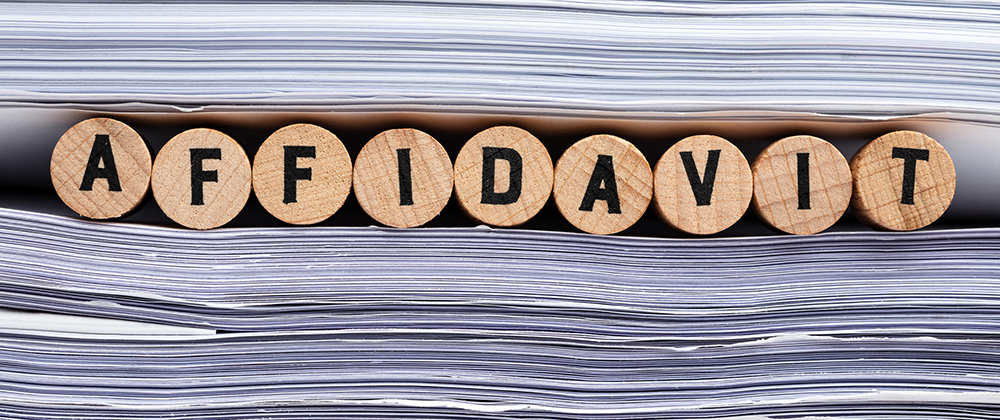In Florida’s construction industry, contractors rely on the state’s lien laws to ensure they get paid for their labor, materials, and services. However, these lien rights come with specific procedural requirements that must be carefully followed. One of the most important, and often misunderstood, steps is serving a Contractor’s Final Payment Affidavit before filing a lawsuit to enforce a lien. Failing to comply with this statutory requirement can jeopardize a contractor’s ability to collect payment through the courts.
An experienced Florida construction lawyer, such as Jonathan P. Cohen, Esq., can help contractors navigate this critical step to protect their lien rights and avoid costly mistakes.
Understanding the Contractor’s Final Payment Affidavit
Under Florida Statute §713.06(3)(d), a contractor who wishes to enforce a lien must first serve the owner with a Contractor’s Final Payment Affidavit at least five days before filing a lien foreclosure action. This affidavit serves an important purpose: it provides the property owner with a clear statement of all unpaid lienors who have supplied labor, services, or materials to the project and remain unpaid at the time the affidavit is made.
The affidavit must list the names of all unpaid lienors and the amounts due to each. If all lienors have been paid in full, the affidavit must state that fact explicitly. The goal is transparency, to give the owner an opportunity to resolve or address any outstanding payment issues before litigation begins.
The statute’s requirements are not optional. Florida courts have consistently held that serving a proper and timely Contractor’s Final Payment Affidavit is a condition precedent to maintaining a lien enforcement action. This means that if a contractor fails to serve the affidavit as required, the lien lawsuit can be dismissed.
Case Law Emphasizing the Requirement
Florida courts have reinforced the strict nature of this procedural requirement. In Martin v. Jack Yanks Construction Co., 650 So. 2d 120 (Fla. 3d DCA 1995), the court held that a contractor’s failure to serve a final payment affidavit before filing suit was fatal to its lien claim. The court explained that the purpose of the affidavit is to give the owner a last chance to settle with lienors and avoid double payment. Without compliance, the contractor forfeited the right to enforce its lien.
Similarly, in Delta Painting, Inc. v. Baumann, 710 So. 2d 663 (Fla. 3d DCA 1998), the court reiterated that service of the affidavit is an absolute condition precedent. Even if the contractor has otherwise complied with the lien law, omission of this step bars the claim.
These cases underscore that the courts interpret Florida’s lien statutes strictly. Technical compliance with the procedural requirements is not just preferred, it is essential.
What the Contractor’s Final Payment Affidavit Must Contain
The affidavit must include:
- The name of the property owner and project.
- A statement that all lienors have been paid in full, or a list identifying those who have not been paid.
- The amount owed to each unpaid lienor.
- The contractor’s signature, affirming that the information provided is true to the best of their knowledge.
The affidavit must be sworn and notarized, as it is a legal statement made under oath. Accuracy is critical. Any false or misleading statements could expose the contractor to potential liability for fraud or perjury.
Timing and Service Requirements
Florida Statute §713.06(3)(d) requires that the Contractor’s Final Payment Affidavit be served on the owner at least five days before the contractor files a lien foreclosure lawsuit. The affidavit must be delivered to the owner personally or by certified mail to ensure proof of service.
It is important to understand that this requirement applies even if the contractor believes the owner already knows who has been paid or unpaid. The statute mandates service regardless of actual knowledge. The courts have ruled that failure to properly serve the affidavit, even if it was prepared, renders a lien unenforceable.
In Fleischer v. Hi-Tech Plastering, Inc., 631 So. 2d 313 (Fla. 4th DCA 1994), the court held that a contractor’s lien action was barred because the contractor served the affidavit after filing the lawsuit, rather than before. This decision demonstrates how strictly the timing rule is enforced.
Why This Step Matters
The Contractor’s Final Payment Affidavit is designed to balance the interests of both contractors and property owners. It helps contractors formalize their claims and protects owners from paying twice, once to the contractor and again to unpaid subcontractors or suppliers.
For contractors, failing to serve this affidavit properly can result in losing their most powerful legal leverage: the ability to enforce their lien through foreclosure. Even a strong claim for unpaid work can be lost over a technical mistake.
For owners, receiving this affidavit can provide a roadmap of outstanding claims and an opportunity to resolve disputes before litigation begins. This transparency often promotes settlement and reduces litigation costs.
Common Mistakes Contractors Make
- Serving the affidavit too late – Filing the lien lawsuit before serving the affidavit or within fewer than five days of service.
- Incomplete information – Failing to include all unpaid lienors or misrepresenting payment status.
- Improper service – Not using certified mail or lacking proof that the owner actually received it.
- Neglecting to update – Using an outdated affidavit that doesn’t reflect recent payments or new claims.
Each of these errors can jeopardize a contractor’s lien rights, making it critical to work with an experienced Florida construction lawyer to ensure compliance.
How a Florida Construction Lawyer Can Help
Navigating Florida’s lien law process requires attention to statutory detail and procedural precision. Jonathan P. Cohen, Esq., a respected Florida construction lawyer, has extensive experience representing contractors, subcontractors, and property owners in lien disputes, payment claims, and construction litigation. His firm, Jonathan P. Cohen, P.A., provides comprehensive guidance to ensure compliance with all notice and affidavit requirements under Florida law.
Jonathan P. Cohen, Esq. assists clients in preparing accurate and timely Contractor’s Final Payment Affidavits and ensures that all pre-suit conditions are satisfied before filing a lien enforcement action. His firm also represents owners who receive these affidavits and need counsel on how to protect their property from double payment or invalid lien claims.
Contact Florida Construction Lawyer Jonathan P. Cohen
The Contractor’s Final Payment Affidavit is a vital step in protecting your lien rights under Florida law. Strict compliance is required, and any misstep can have serious financial consequences. Whether you are a contractor seeking to enforce payment or a property owner responding to a lien claim, having experienced legal counsel is essential.
If you are dealing with a lien issue or need guidance on the Contractor’s Final Payment Affidavit, contact Jonathan P. Cohen, P.A., for skilled legal assistance. As a dedicated Florida construction lawyer, Jonathan P. Cohen, Esq., helps clients safeguard their rights, comply with statutory requirements, and resolve construction disputes efficiently and effectively.
For more information or to schedule a consultation, contact Jonathan P. Cohen, P.A., today at (954) 462-8850.
The information provided in this article does not, and is not intended to, constitute legal advice. The content in this article is presented for general informational purposes only.

